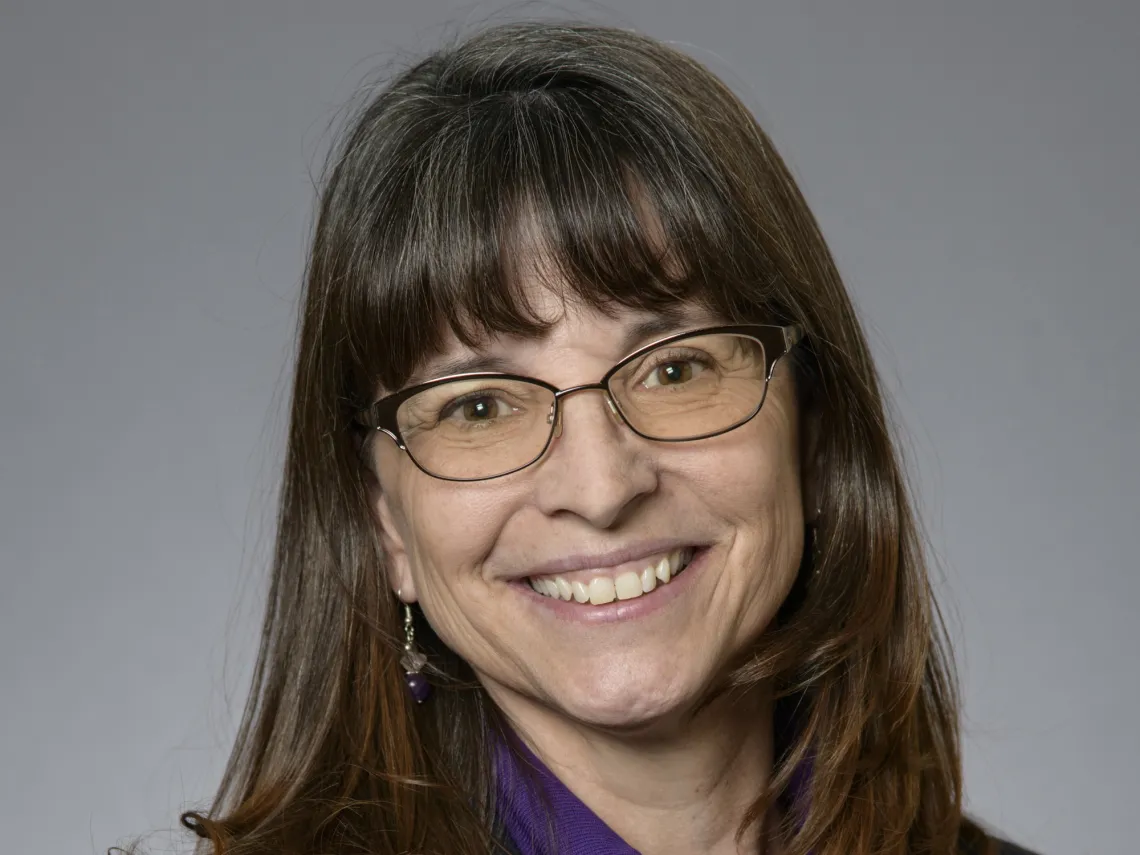JD Class of 2019: For Christina Rinnert, Law School Brings Empowerment for Herself and Others
Rinnert was part of University of Arizona Law's first class to be admitted using the GRE

Hometown: Hammondsport, New York
Undergraduate Institution/Major: Mansfield University / English
Involved in: Native American Law Students Association, Program in Criminal Law & Policy, Fellow and Certificate Program, Indigenous Peoples Law & Policy Certificate Program, Tribal Justice Clinic, Arizona Journal of Environmental Law & Policy, Pride Law, Admissions’ Student Delegate, LexisNexis Rep, Barbri Rep, Tucson Indian Center volunteer, Tucson Police Department Force Review Board Citizen Member and externship with Zanes Law
Christina Rinnert’s journey to law school began 15 years ago, after she fled an abusive marriage and moved out of state with her young children. She spent several years re-establishing herself, eventually graduating magna cum laude from Mansfield University of Pennsylvania. After graduation, she transitioned from a job with the Department of Veterans Affairs to working at a center for victims of domestic violence and sexual assault, first as a volunteer and outreach coordinator, and later as a prevention educator.
“I worked closely with teens in our local high schools and young adults in college—both in groups and one-on-one—to help them understand how they might be more safe, while also teaching about healthy relationships, affirmative consent and where they could turn if something went wrong,” she says.
While working with the center’s attorney, she observed how they assisted victims of sexual assault and interpersonal violence, and she began to consider law school.
“As an educator and an advocate, I was limited in the ways I could help,” Rinnert says. Law school offered a path to do more for victims.
She had already taken the GRE and been admitted to a graduate program. But then an attorney friend in Tucson who served with her in the Marine Corps alerted her to University of Arizona Law’s then-new policy of allowing students to apply with the GRE instead of the LSAT. Rinnert jumped at the chance to apply.
“It was the best, most terrifying decision I’ve ever made!” she says.
Rinnert adds that, due to cost and time barriers with the LSAT, she wouldn’t be in law school if Arizona Law had not made the GRE option available, something dozens of other law schools have since done.
“I am proud to be part of the change taking place in law school admissions,” Rinnert says. “I feel that using the GRE will open the field up to people who, like me, might have otherwise been excluded.”
What it Feels Like to Realize Your Dream
Rinnert’s decision to attend Arizona Law was confirmed when she visited the college for the first time.
“The pièce de résistance was learning about the Indigenous Peoples Law and Policy program, researching the amazing professors who teach here, and realizing that I could become part of such a wonderful program,” Rinnert says.
She felt further validated that she was on the correct path when she won second place in the Richard Grand Legal Writing Competition during her 1L year.
Rinnert took full advantage of Arizona Law’s curriculum offerings, student clubs, law journals and community service opportunities, but she says one experience stood out above them all.
“My clinical experience with the Tribal Justice Clinic and Professor Jim Diamond had the single biggest impact on me,” says Rinnert, adding that preparing for and being in court for her first case in the Pascua Yaqui Tribal Court was a dream come true.
She also completed Tribal Justice Clinic work outside the courtroom, cataloguing Tohono O'odham Nation cases into a searchable online database so that tribal members, lay advocates, attorneys and judges can more easily locate case law from the Nation.
“It is such a great feeling knowing that I've been part of creating something that will help the legal community here,” says Rinnert. Her ultimate goal after graduation is to work with either the Tohono O’odham Nation or the Pascua Yaqui Tribe.
Rinnert says she will miss just about every aspect of her time at Arizona Law—her classmates, professors and even the challenges that law school presents.
Overcoming those challenges has given her something that will remain with her long after she leaves campus: the confidence that she belonged here, that she was more than up to the task of earning a JD.
“The feeling I’ve had, for most of my life, that I am an imposter and not smart enough to do this, has been quelled,” Rinnert says proudly. “I’ve come to realize that many people feel this way, but that once we put ourselves out there and really try, the feeling can be thrust aside. With the help and encouragement of my classmates and professors, I’ve realized that achieving this dream that I’ve had truly is possible.”
